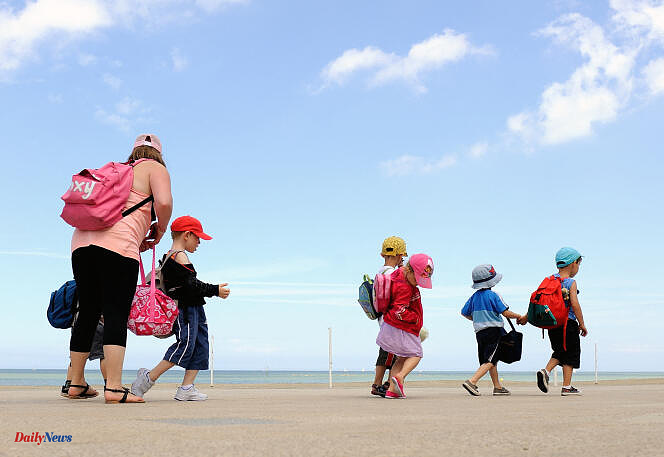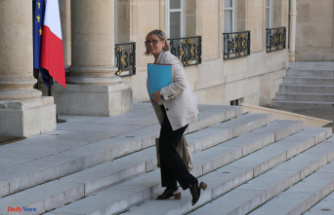It will help to finance, in part, departures to summer camp. The government announced on Thursday April 11 that it was launching a “colo pass” for children aged 11. From April 15, households with up to 4,000 euros of net monthly income will be able to claim this aid, which will allow them to deduct between 200 and 350 euros from the displayed travel price, an amount which will vary depending on the family quotient.
This aid, announced in July 2023 by Aurore Bergé, then Minister of Solidarity, and allocated subject to means conditions, will be cumulative with other measures (financing of works councils, etc.). According to calculations by the Ministry of Children and Families, 80% of 11-year-old children born in 2013 should be eligible.
Families will be able to find, on the Jeunes.gouv.fr website, a catalog of summer camps eligible for the “colo pass”. By booking the stay on this site, the amount of the assistance will be directly deducted from their bill. Only stays in France will be eligible, specifies the site.
New “Republican rite”
“With the “colo pass”, we are aiming for a new republican rite”, which “will join entry to school and obtaining the baccalaureate among the moments that mark a journey”, explains to Agence France-Presse the Minister for Children and Families, Sarah El Haïry.
By “facilitating access to outdoor activities”, the government intends to “promote the well-being of children, and therefore prevent concerns about mental health, obesity and attachment to screens”, adds the minister. “Fighting against digital nannies and the unreasonable use of screens during the holidays involves offering alternatives to parents,” she assures.
“A summer camp is the memory of a life, it’s learning about yourself, learning from others, learning differently: community life complements school learning,” concludes Sarah El Haïry.
The system is expected to cost 8 million euros this year, and, depending on the planned ramp-up, 32 million in 2027. It will be financed by the family branch of social security, according to the Ministry of Families.












